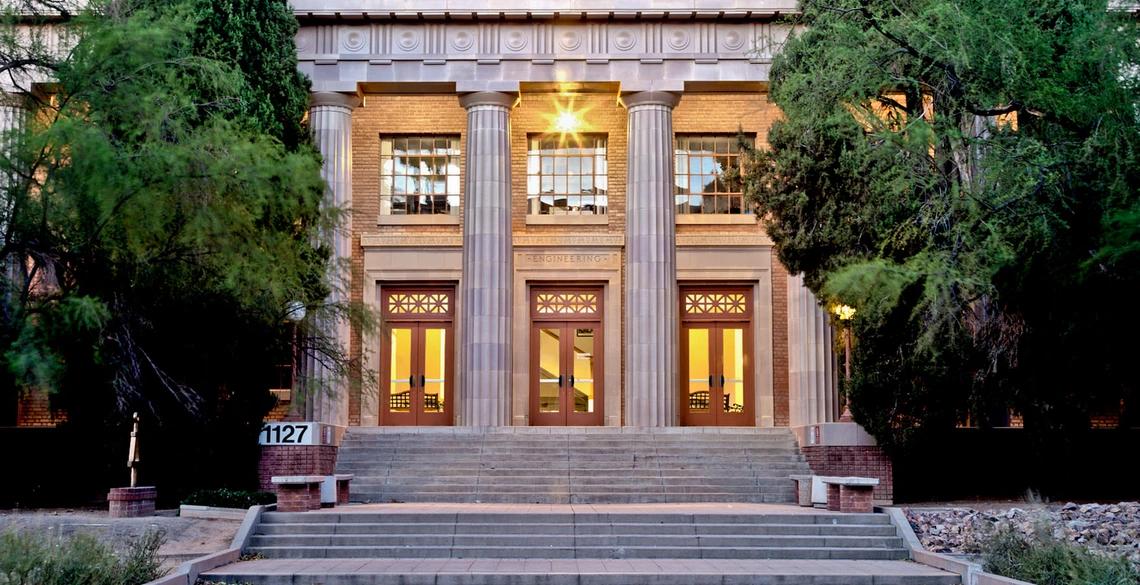College of Engineering Launches Faculty Mentoring Program
NSF and College of Engineering organize joint workshop to guide new engineering faculty through starting their academic career.

No description provided
Young engineers face a bewildering array of options and decisions in their professional lives, and it doesn’t get any easier if they choose a career in academia.
Life as a university faculty member is fraught with pitfalls and hard questions. How do I set up a research program? How does tenure work? How do I manage my students? How do I manage my personal life? These questions become more pressing as universities face funding cuts and increasingly rely on research grants.
Teaching the Teachers
Students often seek mentors to guide them through the academic labyrinth, but young faculty need mentoring too. To meet this need, the College of Engineering and the National Science Foundation have organized the NSF Workshop on Career Development, which will take place Jan. 11-12 at the Westward Look Resort in Tucson, Ariz.
The workshop, the only one of its kind to be offered this year in the Southwest, has attracted more than 60 young engineering faculty from UA and other Southwest schools, including New Mexico State University, New Mexico Tech, University of New Mexico, University of Texas, and Northern Arizona University.
“The workshop marks the launch of the UA College of Engineering’s faculty mentoring program,” said professor Glenn Schrader, workshop co-organizer and the college’s associate dean for research. “Academic professional development sometimes relies on random encounters, trial and error, and the school of hard knocks,” Schrader said. “Our goal with this program is to help our young faculty be successful right from the start of their careers.”
The objective of this workshop is to encourage faculty to identify career goals and specify objectives, and then develop a plan to achieve them. Specific topics to be explored in detail include establishing a research program, managing research and teaching, understanding the university environment, and balancing life and work.
Faculty Focus
Schrader said that future workshops would cover subjects such as how to write successful grant proposals, working with industry, and how to build an outstanding reputation within professional areas.
“We are fortunate because the NSF organizes only a few of these workshops around the country,” Schrader said. “This workshop will give our young faculty a broad professional horizon on which to focus, and shape the way they structure their professional careers.”
The workshop will be led by co-organizers Geoffrey Prentice, acting director of the Division of Chemical and Transport Systems at NSF, and professor Tim Anderson of the department of chemical engineering at the University of Florida. Anderson and Prentice have presented this workshop for the last six years and have accumulated evidence that faculty benefit from it.
Building a Career
The NSF’s prestigious Faculty Early Career Development Program has awarded grants of about $400,000, known as Career awards, to several young faculty in the College of Engineering. Workshop attendees will be able to join a mock panel review of past Career award proposals; they will then give their recommendations, which will be compared with comments from actual NSF reviews. Another panel will review fictitious promotion and tenure packages and render a recommendation.
In 2009 Roman Lysecky, assistant professor in the department of electrical and computer engineering, received a Career award to develop high-performance customizable computer chips. He agrees that this workshop is a boon for junior faculty. “Most of the mentoring I received was self-initiated in that I sought advice from others when I was unsure of the decision myself,” Lysecky said. “The advice I received was extremely useful and definitely impacted my decisions and directions.”
Just asking around, however, rather than referring to a definitive source, creates its own problems. “The biggest problem I encountered was receiving conflicting advice from multiple sources,” Lysecky said. “While any decision must be your own, conflicting advice creates an additional concern that you will have to ignore someone’s advice.”

